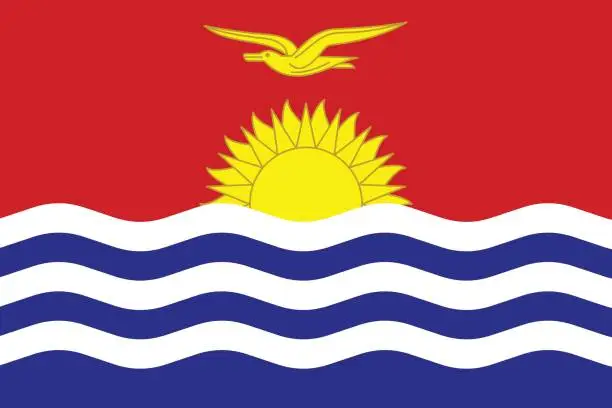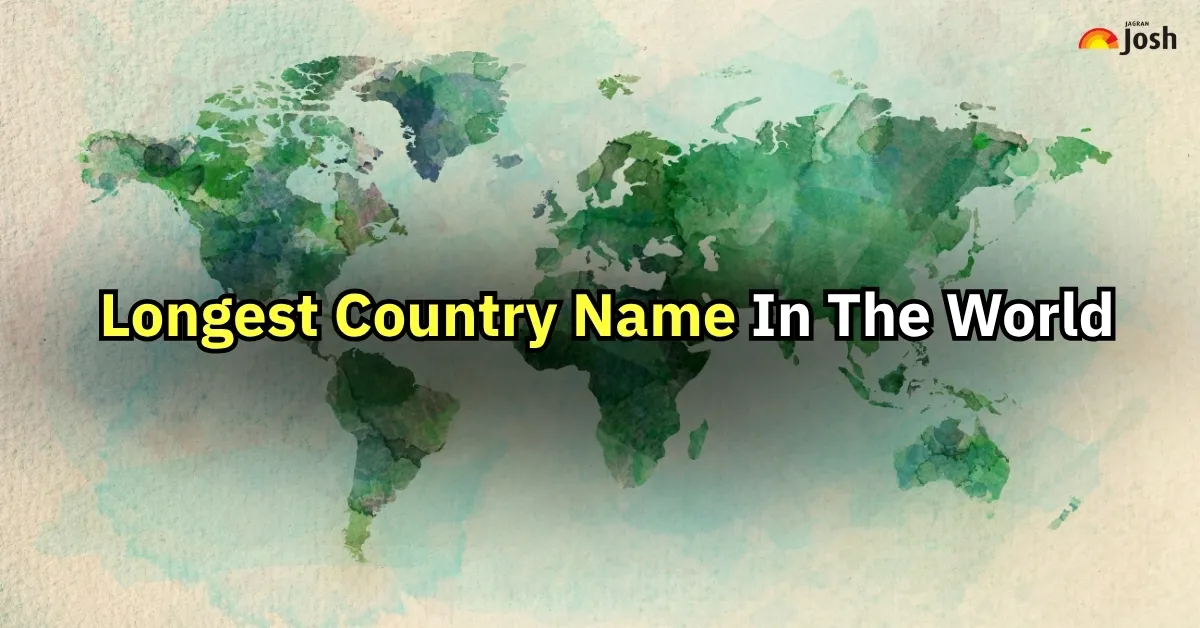Taumatawhakatangihangakoauauotamateaturipukakapikimaungahoronukupokaiwhenuakitanatahu. It’s not just a combination of random alphabets; that’s the name of a hill in New Zealand. It holds the record for the longest place name in the world. It has 85 letters! Isn’t that fascinating?
Now, if you think about countries, some nations have official names that are surprisingly long. For example, the full name of the UK is The United Kingdom of Great Britain and Northern Ireland.
That’s 56 characters including spaces. Another example is the Independent and Sovereign Republic of Kiribati. These names are rarely used in everyday conversation, but they are the official titles.
In this article, we’ll take a look at the top 5 countries with the longest official names by letter count. We’ll explore what these names mean, why they’re so long, and how they reflect each country’s history, culture, and identity.
Check Out| Which Bird is the Most Dangerous in the World? List of Top 5 Deadliest Birds in the World
List of Countries with the Longest Names by Letter Count
According to the World Population Review and WorldAtlas, here’s the list of the countries with the longest names by letter count.
| Rank | Country Name | Character Count |
| 1 | The United Kingdom of Great Britain and Northern Ireland | 56 |
| 2 | Independent and Sovereign Republic of Kiribati | 46 |
| 3 | Democratic Republic of São Tomé and Príncipe | 45 |
| 4 | The Former Yugoslav Republic of Macedonia | 41 |
| 5 | The Democratic People's Republic of Korea | 41 |
| 6 | Federal Democratic Republic of Ethiopia | 40 |
6) Federal Democratic Republic Of Ethiopia

Source: Freepik
- Letter Count: 41
- Continent: Africa
- Capital: Addis Ababa
- Population: 135.47 million
- Currency: Birr (ETB)
- Official Languages: Amharic, Afar, Oromo, Somali, Tigrinya
The Federal Democratic Republic of Ethiopia is a landlocked country located in the Horn of Africa. Its extensive name reflects its political structure and historical evolution.
Ethiopia has many hidden gems, such as the Danakil Depression, the world's hottest place, and Lalibela, home to Ethiopia's mysterious rock-hewn churches known as New Jerusalem.
The country has a long and proud history as an independent nation, avoiding colonial rule. The "Federal Democratic Republic" part of its name signifies its post-1991 political transformation into a multi-ethnic federation with a democratic governance system.
5) Democratic People's Republic Of Korea

Source: iStock
- Letter Count: 32
- Continent: Asia
- Capital: Pyongyang
- Population: 26.5 million
- Currency: KPW (North Korean Won)
- Official Language: Korean (Munhwaŏ)
The Democratic People's Republic of Korea, often known as North Korea, is a country in East Asia that occupies the northern half of the Korean Peninsula.
Its elaborate names reflect the self-proclaimed political ideology. The "Korea" is derived from the Goryeo Dynasty, which ruled the peninsula from 10 to 13.
The "Democratic People's Public" section of the name claims to be a democratic state representing people's will. However, it is internationally recognised as a totalitarian dictatorship.
4) The Former Yugoslav Republic of Macedonia
Source: Quora
- Letter Count: 41
- Continent: Europe
- Capital: Skopje
- Population: 1.83 million
- Currency: Macedonian Denar
- Official Languages: Macedonian, Albanian
The country "The Former Yugoslav Republic of Macedonia" earned its lengthy name due to a historical dispute with Greece. When it declared independence from Yugoslavia in 1991, it chose "Republic of Macedonia".
However, Greece has a northern region also named Macedonia and feared territorial claims. To avoid conflict and gain international recognition, especially within the United Nations, a provisional name was adopted: "The Former Yugoslav Republic of Macedonia".
This extended name served as a diplomatic compromise, indicating its past association with Yugoslavia while acknowledging the ongoing name controversy, making it one of the longest country names globally. In 2019, the country officially changed its name to "Republic of North Macedonia" to resolve the dispute.
3) Democratic Republic Of São Tomé And Príncipe

Source: Britannica
- Letter Count: 40
- Continent: Africa
- Capital: São Tomé
- Population: 240 thousand
- Currency: Dobra (STN)
- Official Language: Portuguese
The Democratic Republic of São Tomé and Príncipe is an island nation located in the Gulf of Guinea, off the western equatorial coast of Central Africa. Its name reflects both its geography and political system. "São Tomé" (Saint Thomas) was named by Portuguese explorers who discovered the island on the feast day of Saint Thomas.
"Príncipe" (Prince's Island) was named in honour of the Prince of Portugal, who received customs duties from the island's sugar production. The "Democratic Republic" prefix refers to its post-independence political structure, which was established in 1975 after liberation from Portuguese colonial rule.
Read On| Is Cyprus a Country? Check History, Flag, Map and Interesting Facts
2) Independent and Sovereign Republic of Kiribati

Source: Vectorportal.com
- Letter Count: 46
- Continent: Europe
- Capital: London
- Population: 69.53 million
- Currency: Pound Sterling (GBP)
- Official Language: English
The Independent and Sovereign Republic of Kiribati is an island nation located in the central Pacific Ocean, straddling the equator and the International Date Line. Its extensive official name reflects its post-colonial status and self-determination.
The name "Kiribati" is the local pronunciation of "Gilberts", a reference to the Gilbert Islands, which were named by Captain Thomas Gilbert, a British naval officer who explored the area in the late 18th century.
1) The United Kingdom Of Great Britain And Northern Ireland

Source: Freepik
- Letter Count: 56
- Continent: Europe
- Capital: London
- Population: 69.53 million
- Currency: Pound Sterling (GBP)
- Official Language: English
The United Kingdom, often shortened to the UK, is an island nation located off the northwestern coast of mainland Europe.
It consists of England, Scotland, Wales and Northern Ireland. The comprehensive official name reflects the unique historical formation: "The UK" refers to the largest island that includes England, Scotland and Wales, while "Northern Ireland" is the northeastern part of the island of Ireland.
What's Next| Which Country is the Largest Producer of Fox Nuts (Makhana) in the World?
